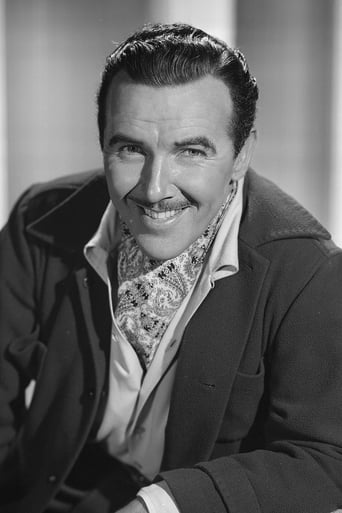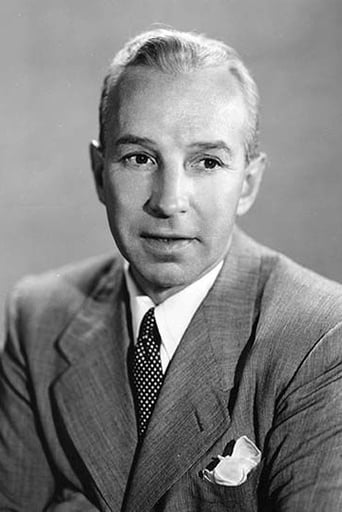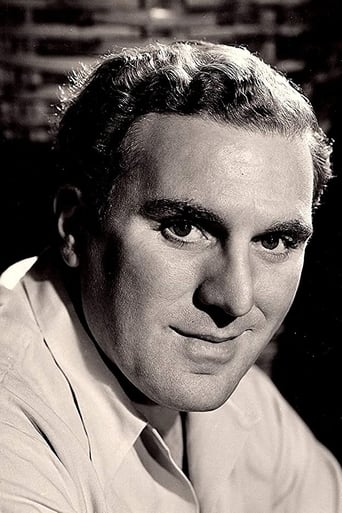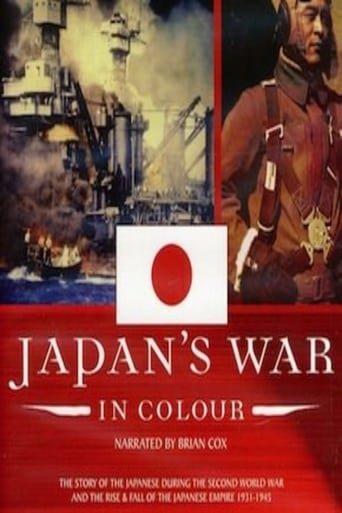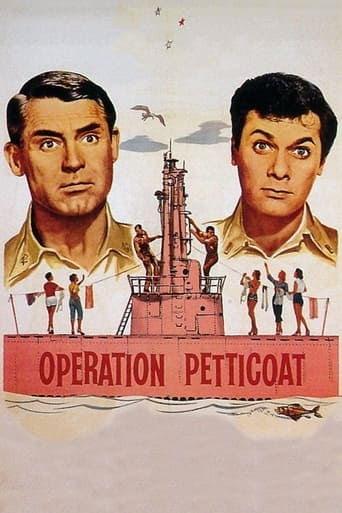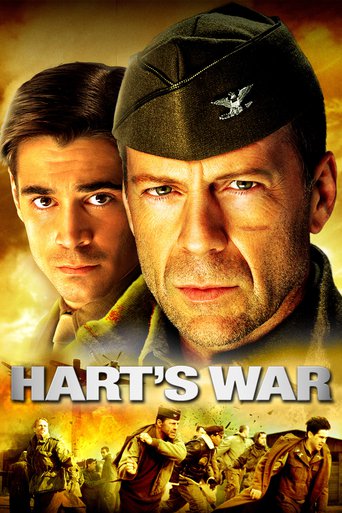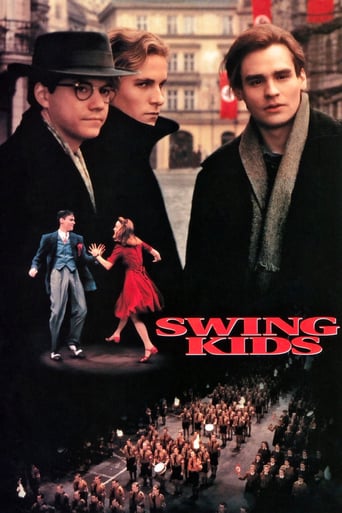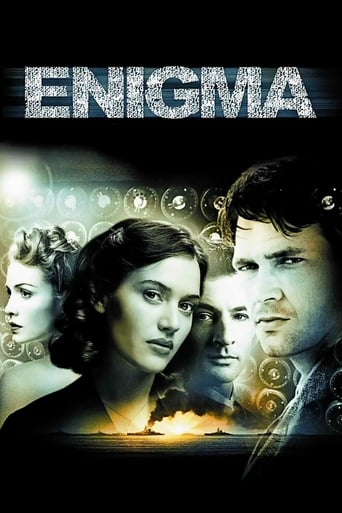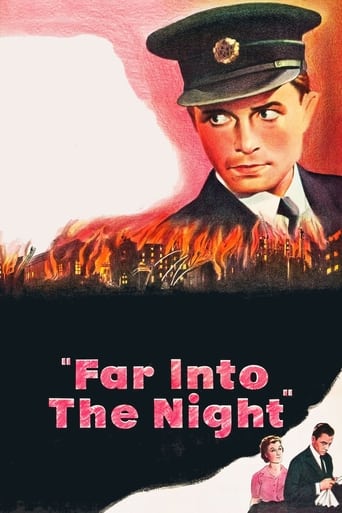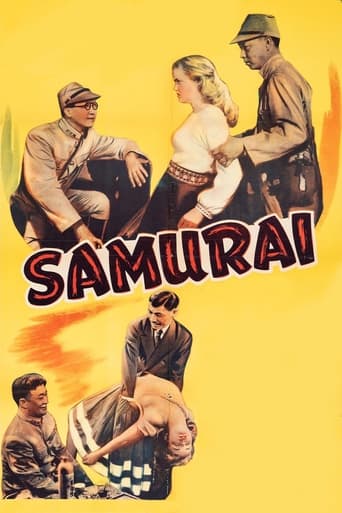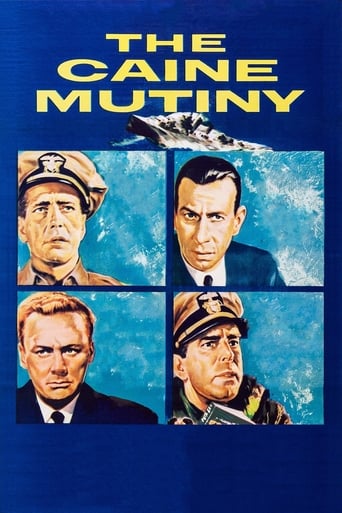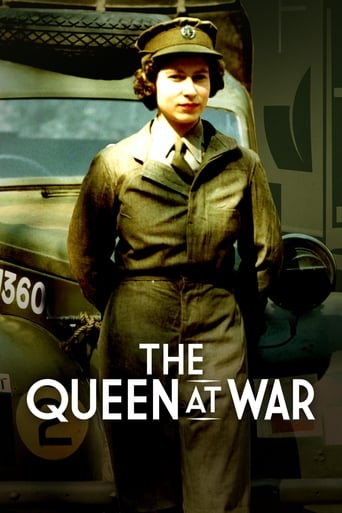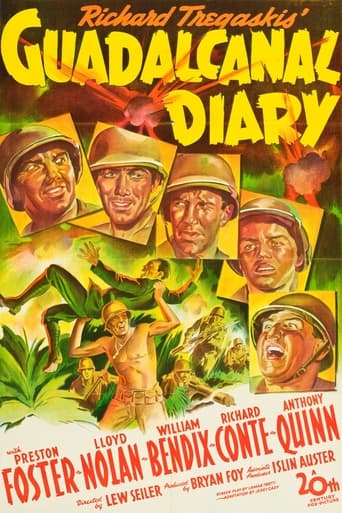
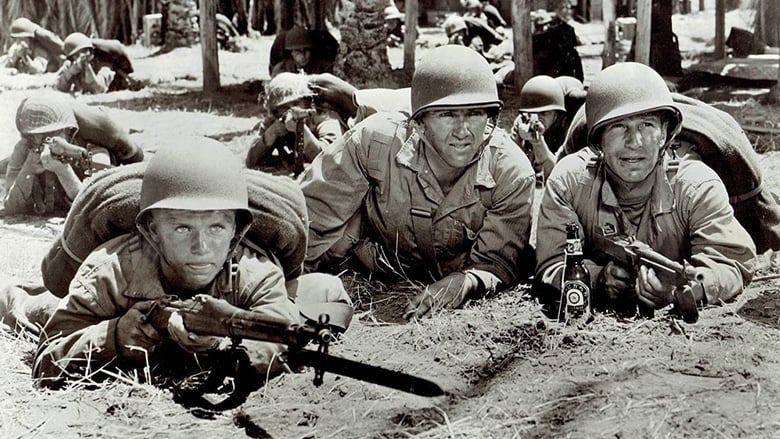
Guadalcanal Diary (1943)
Concentrating on the personal lives of those involved, a war correspondent takes us through the preparations, landing and initial campaign on Guadalcanal during WWII.
Watch Trailer
Cast


Similar titles
Reviews
The film starts with a ship full of marines in the South Pacific. They are bonding and joking around and you may well feel that this is a film about homosexuality and that it's actually called GuadalAnal Diary. Well, after the scene has been set, it actually turns into a war film. The cast of characters are assigned a mission and attack a Japanese occupied island. What lies ahead of them? This is based on a campaign that happened for real.It's a good film with memorable scenes including a platoon's total annihilation bar one soldier – Anthony Quinn (Soose) – who literally runs for his life. The most memorable character is probably William Bendix (Taxi), possibly because he is the loudest, but he provides an effective everyman speech as the end looks imminent for him and his comrades as they are holed up sheltering from a bombing campaign. The words are simple and they are followed by an "Amen" that is said by Lloyd Nolan (Hook) . I think it's Nolan – I can't remember. Someone says it though. It switches the scene from being potentially corny to being a moving episode.Definitely one of the best war films of this year (1943) along with "Hostages", "A Guy Named Joe", "Bataan", "The Adventures of Tartu", "Five Graves To Cairo", "The Strange Death of Adolph Hitler" and "The Silver Fleet". Check them out.
"Guadalcanal Diary" qualifies as the first American combat film about a seaborne military invasion of a Japanese-occupied island during World War II. Movies made during World War II were always patriotic and none of the enlisted men ever contemplated killing their superior officers because the latter were incompetent strategists. All of these guys get along great. The one who doesn't walks off into the jungle since he received no mail from home. Nobody is involved in the black market. Nobody utters any unpatriotic sentiments. One soldier confesses that he cannot handle the burden of Guadalcanal and hopes that God will protect him. Not surprisingly, Father Donnelly is the Marine priest who helps them out with their spiritual crises. Consequently, "Old Hickory" director Louis Seiler's movie about Guadalcanal represents a traditional American combat outing. Seiler and "In Old Chicago" scenarist Lamar Trotti chronicle the landings and life on Guadalcanal beginning when the landed in early August until late October. "Guadalcanal Diary" opens with an image of the Richard Tregaskis book atop a map of Guadalcanal in the Solomon Islands. An off-screen hand opens the book for us to read the foreword: "A new chapter in the history of America by a correspondent who landed on Guadalcanal with the first detachment of United States Marines." The action unfolds on a U.S. Navy transport somewhere in the South Pacific. The narrator informs us that it is Sunday, July 26, 1942. Soldiers are attending mass. Officers are sunning on deck, and a war correspondent (Reed Hadley of "Sky Raiders") promises a young Marine, Pvt. Johnny 'Chicken' Anderson (Richard Jaeckel of "The Dirty Dozen" in his cinematic debut) that he put his name in one of his dispatches to his newspaper. Seiler acquaints us with the Marines and the top brass. The Marines are a fun-loving variety of guys, playing musical instruments, like the harmonica, dancing foolishly with each other, reminiscing about their home life, but mostly they are curious about their destination. About ten minutes into the narrative, Col. Wallace E. Grayson (Minor Watson of "To the Shores of Tripoli"), informs everybody that they are going to invade Guadalcanal. Gunnery Sergeant Hook Malone (Lloyd Nolan of "Ice Station Zebra") not only warns them about Japanese booby-traps but also snipers.Friday August 7th arrives and our heroes prepare to leave the transport. Initially, when they wade ashore, the Marines encounter no opposition. They secure the airstrip that they were sent to occupy. Later, Colonel Grayson sends Captain James Cross (Roy Roberts of "Cripple Creek") and a squad, including Private Jesus 'Soose' Alvarez (Anthony Quinn of "The Plainsman"), to check out the Japanese held village of Matanikau. The Marines go by sea rather than through the jungle. A Japanese submarine spots them at sea and blasts away at them. Marine shore batteries respond. One of the two boats takes a hit before the shore gunners can sink the sub. Our heroes aren't out of the frying pan. Moments after they scramble up the beach and send in a patrol, the Japanese cut loose. The Japanese prisoner who told them about the village assured them that the Japanese soldiers were starving and had thrown away their weapons. One of the officers on the patrol dies and another is wounded. Alvarez is ordered in to find the dead officer, Lieutenant Thurmond (John Archer of "Sherlock Holmes in Washington") and tangles with a couple of Japanese using his close-quarters combat skills to kill them. Cross realizes that he needs to get a message back to Grayson. The first runner is picked off while the Japanese kill everybody on the beach in their shallow foxholes except three. Cross watches as the surf slosh over the dead soldiers and the last two and he make a break for the palm trees. The Japanese open fire and kill the third man. Bullets cut down Cross. Seiler stages a sentimental scene when Cross's helmet falls off and he reaches for it. We see the photograph of his wife and children before he dies. Alvarez beats a retreat and dives into the ocean with the Japanese blazing away at him.Grayson leads the Marines through the jungle and they attack the Japanese. Chicken craves a sword alongside a fallen officer. When he disobeys Hook's warning, a sniper hits him. Meanwhile, another wisecracking Marine, Private Tex Mcllvoy (Eddie Acuff of "Gallant Sons") demonstrates his marksmanship skills and knocks a sniper out of a palm tree. Tex makes turkey calling noises and drops the enemy. "Scratch one squint eye," he observes. Throughout "Guadalcanal Diary" the Japanese are referred to with belittling, racist words. Earlier, Chicken questioned Hook about the morality of killing. "It's kill or be killed," Hook replies and then notes that the Japanese enemy are not people. Later, the Japan bomb Guadalcanal and send our boys into their foxholes. Eventually, the Army shows up to relieve the Marines after weeks and weeks of combat with no let-up and the Japanese ferrying in troops from nearby islands. At 65 minutes into the action, Captain Don Davis (Richard Conte of "The Godfather") leads a patrol to fight the Japanese holed up in caves. They clear the terrain above the caves and hurl satchel charges into a cave crowded with armed Japanese soldiers. The narration gets a bit heavy-handed at times. "Boys with the memories of death in their eyes" drones Hadley. For the record, Alveraz dies, but Chicken learns how to play possum and then get the drop on three Japanese soldiers and kill them. "Guadalcanal Diary" depicts the Japanese as a ruthless, tricky enemy. Director Seiler keeps them at arm's length so we never get to learn much about them except that they are thoroughly treacherous. "Guadalcanal Diary" concludes with another offensive against the Japanese on the South Seas Island.
This is one of the better (and most topical) of Hollywood’s wartime efforts, but which seems to have been largely overlooked among the surplus of such films – possibly because it was helmed by journeyman director Seiler.Still, the handling is entirely professional and the film makes the most of a good script by Lamar Trotti – peopled with believable characters ably portrayed by a fine cast (Preston Foster, Lloyd Nolan, Richard Conte, Anthony Quinn, Richard Jaeckel). The requisite comic relief provided by William Bendix and Lionel Stander is slightly overstated…but, then, Bendix delivers the film’s most moving speech towards the end.The film – unavoidably jingoistic but, at the same time, realistic i.e. thankfully free of gung-ho heroics – balances taut action sequences (culminating in the so-called “Great Offensive”) with a handful of undeniably powerful, lingering images (particularly the line-up of dead U.S. marines ambushed on a beach by the devious Japanese forces). I’ll be following this with Cornel Wilde’s well-regarded BEACH RED (1967), which also deals with WWII combat in the Pacific; besides, I also own – but have yet to watch – the R2 DVD of Lewis Milestone’s contemporaneous THE PURPLE HEART (1944), which tackles similar events from a unique perspective.
The ensemble cast of this film made it the fine war film it is. Most of the cast had starring roles in other films. I thought the narration of Reed Hadley was perfect in telling the story of the first American offensive against the Japanese in WWII. Guadalcanal was a turning point in the Pacific War as it ended a series of Japanese successes and began the shrinking of their Pacific conquests. Others have pointed out the historical inaccuracies including the fact that the Japanese survivors were successfully evacutated from the island and not driven into the sea as depicted in the final battle. One shocking inaccuracy I noticed took place on the second day of the Marine landing. The first night, while huddled in foxholes, they hear gunfire off shore and comments that "The Navy is busy tonight." The next morning, Col. Grayson (Minor Watson) comments, "We lost four cruisers but we beat them off good." In fact, the U.S. Navy suffered one of its worst defeats in history in the battle of Savo Island. The Japanese commander was hardly "beaten off" but decided to withdraw after sinking 4 Allied cruisers (Canberra, Astoria, Quincy and Vincennes)because he thought U.S. carriers were in the vicinity. In fact, they had departed and the Japanese commander could have destroyed the entire invasion fleet and the outcome would have been far different. What proved to be an eventual allied victory, came within a hairs-breath of being a disastrous defeat. While the Marines have received the lion's share of the glory, well deserved, Guadalcanal took the lives of many more Navy personnel than Marines. The many horrific night naval battles took a heavy toll and the waters north of Guadalcanal were aptly renamed "Ironbottom Sound." Sadly, Hollywood has never made a film about the horrors faced by sailors in achieving the victory at Guadalcanal. The movie about the five Sullivan brothers, who all died when their ship (Juneau) was sunk with only 10 survivors in the bloody waters of Guadalcanal, was just a small part of the carnage the Navy suffered there. Guadalcanal Diary is a stirring tribute to the Marine Corps and a accurate portrayal of what they endured on that wretched island.


